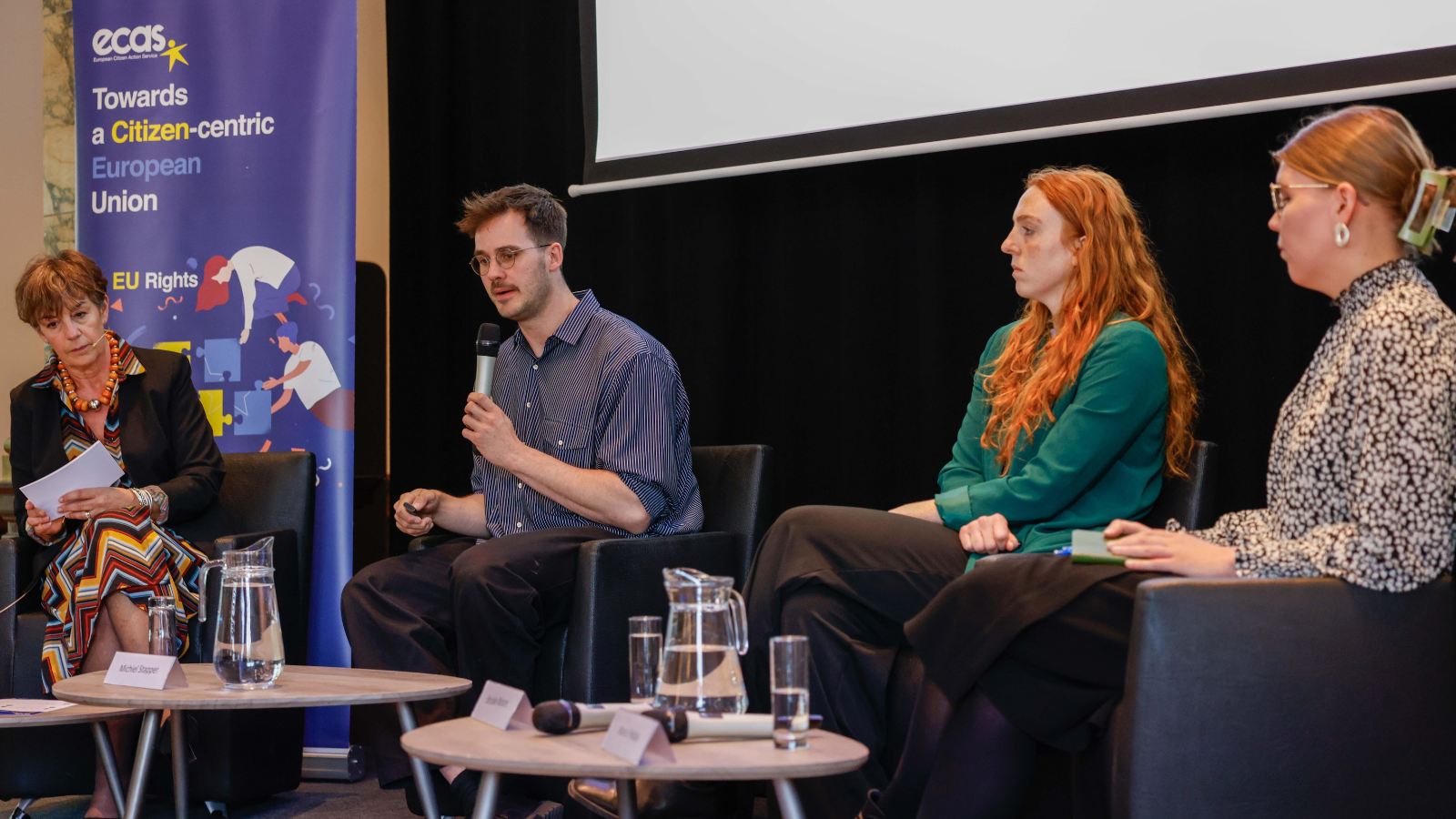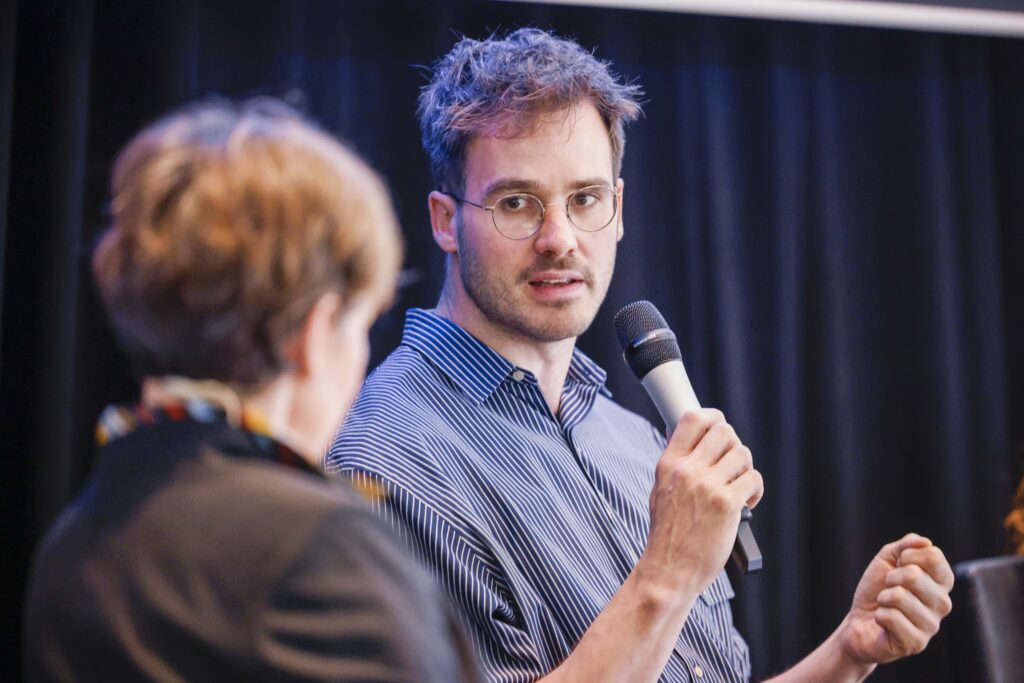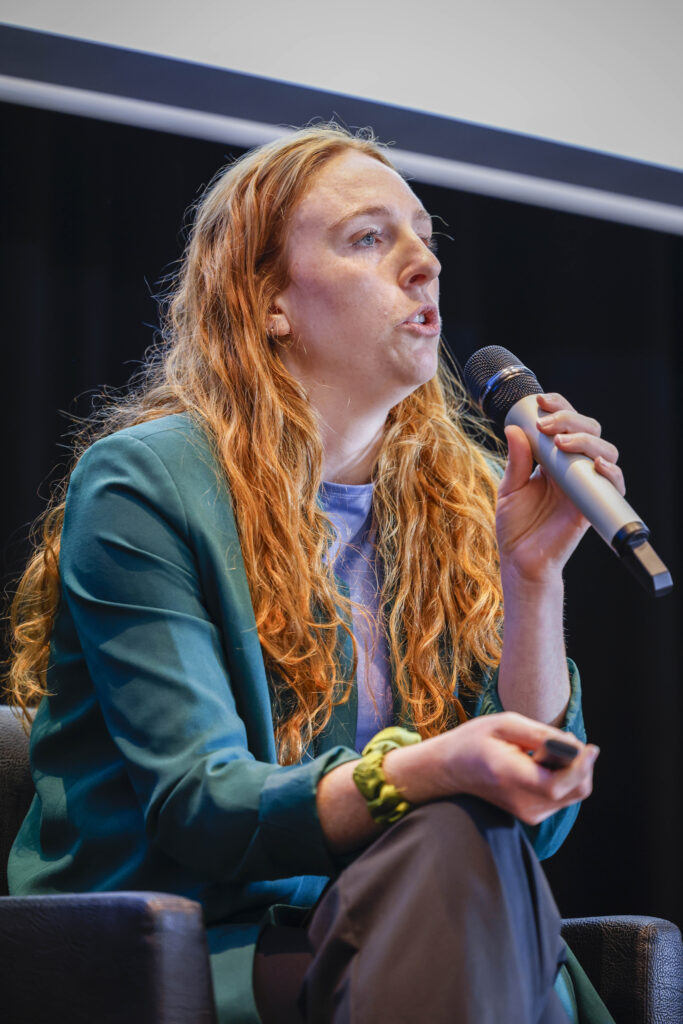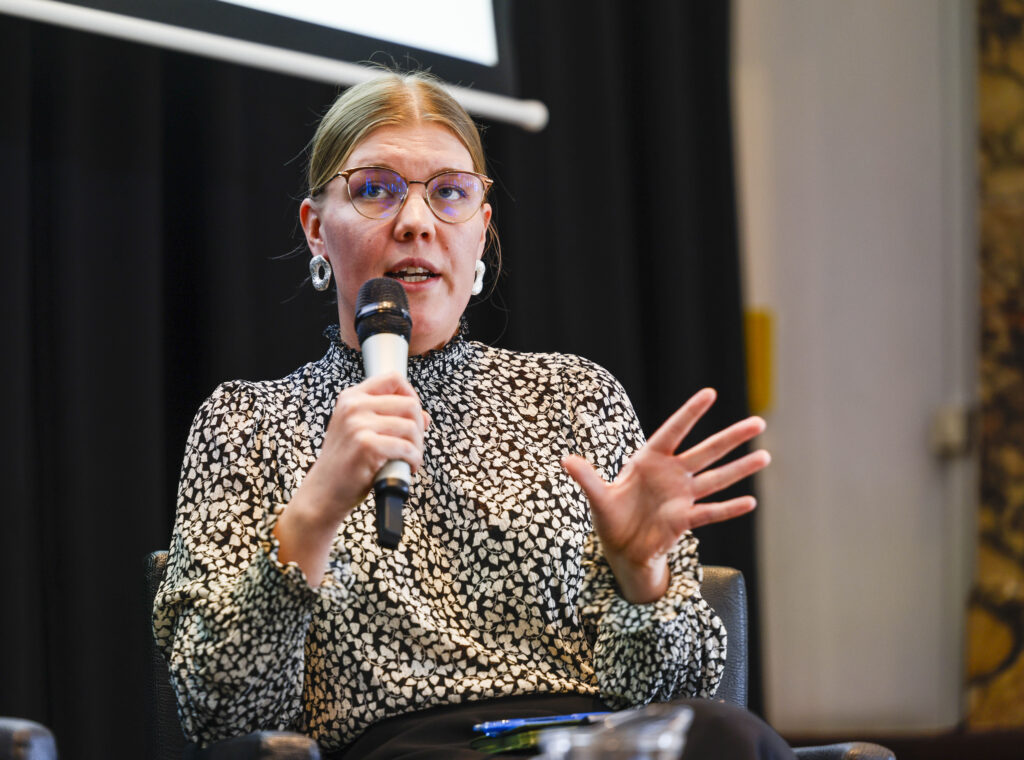Home>News>BOLSTER organises its 3rd EU Policy Dialogue

On 15 April 2025, the BOLSTER consortium organised its 3rd EU Policy Dialogue in the framework of ECAS’ annual flagship event: “State of the Union Citizens’ Rights 2025 Conference”. The event brought together experts from academia, civil society, and policy analysis to discuss EU Green Deal initiatives, focusing on local and regional contexts, especially in areas affected by the phase-out of coal, steel, or chemical industries. The event, held as part of the BOLSTER project’s ongoing engagement with policymakers and local stakeholders, explored practical approaches to embedding citizens’ voices in just transition strategies.
The panel, titled “Including Citizens in the Just Transition,” featured three presentations that focused on local initiatives and digital innovation as key levers for transformative change:
His presentation highlighted the importance of tailoring policy responses to the diverse needs of communities—especially those historically left behind by economic change. Using extensive data collections (including over 120 interviews with key actors and 70 interviews with marginalized community members), he illustrated the structural challenges, from gender dynamics to political polarization, that complicate the transition process.

2. Brooke Moore (European Policy Centre): Focusing on digital innovation, Moore demonstrated how digital tools—ranging from co-design platforms to online engagement tools—can overcome traditional top-down barriers and ensure that public feedback is meaningfully integrated into policy planning.

Moore argued that digital platforms have the potential to revolutionize how citizens engage with JT processes. However, she also cautioned that digital solutions must be embedded within a broader framework aimed at addressing systemic inequalities. Moore also stressed that digital solutions must complement broader efforts to dismantle structural inequalities, and particularly the digital divide due to factors like infrastructure, skills and literacy, and should not be seen as a stand-alone fix.
Maris Pedaja (CEE Bankwatch Network): Pedaja brought a grassroots perspective, reporting on how civil society organisations across Central and Eastern Europe – where municipalities are at the forefront of JT initiatives – are working to integrate citizens in decision-making.
She illustrated how JT funds have been used to pioneer integrated territorial plans that consider social, environmental, and economic goals. Her findings reveal that while municipalities now have the means to plan for long-term change, the JT strategies often fall short by focusing largely on economic aspects—leaving social policies underfunded. She argued that inclusive approaches must account for diverse community needs while promoting spatial planning instruments that extend beyond 2027.

The dialogue underscored several critical messages:
1) Bridging the gap: there is a persistent mismatch between the needs of marginalized communities and the current design of the Just Transition Fund. Ensuring that every community’s voice is heard requires further refinement of policy tools and more inclusive, localized planning.
2) Harnessing digital innovation: digital engagement tools can significantly enhance the quality, transparency, and accountability of citizen participation in the European Green Deal and Just Transition policies. However, they are not a cure-all. A successful green transition demands that digital strategies are coupled with efforts to address longstanding structural inequalities.
3) Empowering Civil Society: CSOs play a pivotal role in both safeguarding participatory rights and ensuring that local perspectives inform the transition. Their involvement from the inception of policy design leads to better outcomes and higher satisfaction among citizens.
4) Systemic policy adjustments: the dialogue reiterated the need for policy adjustments that account for the sociocultural dimensions of just transition, including gender imbalances and the historical context of deindustrialization. Building capacity within communities, particularly among those who are traditionally marginalised, is fundamental to the long-term success of the European Green Deal.
Photos: © Elio Germani 2025
"*" indicates required fields
Brussels, 8 August 2025 In 2025, more than half of EU member states performed worse than the year before in Reporters Without Borders’ World Press Freedom Index, revealing an alarming […]
*The European Citizen Action Service (ECAS) is proud to announce the launch of ERIC – the ECAS Rights Information Centre, an innovative AI-powered assistant designed to help citizens better understand […]
** (Limited spaces available – applications reviewed on a rolling basis) Tired of European democracy being considered as sluggish and outdated? Passionate about innovation and tech-driven solutions for democratic processes? […]

